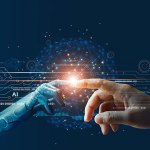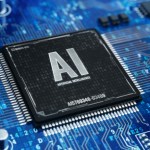Our group carries out various research activities in different areas of Artificial Intelligence, mainly in:

Human Centered AI: Following the Ethics guidelines for Trustworthy AI by the high-level expert group set up by the european commission, “[…] AI systems need to be human-centric, resting on a commitment to their use in the service of humanity and the common good, with the goal of improving human welfare and freedom“.
In this context, our research aim to enhance the trust level of the stakeholders involved, from domain experts and final users. In particular, we study and develop Explainable Artificial Intelligence methods to be applied in situations where the necessity of understanding how an AI system works and creates outputs are of paramount importance, such as the health care and the autonomous driving ones.
Our activities mostly focus on the design and applications of transparent by-design AI models, such as Decision Trees and Rule Based systems.

Hardware Accelerators for AI: AI in general, and deep learning in particular, require hardware accelerators to perform the training on huge datasets. We are investigating several ways to perform acceleration, from software to hardware.
We are currently investigating the acceleration using vectorized, multi-lane RISC-V CPUs, also considering alternative representations of real numbers, like the recently introduced posit format. This activity is carried on in collaboration with the Barcelona Supercomputing Centre, within three European projects (EPI SGA2, TEXTAROSSA, EuPilot).
In addition, we are collaborating with CNR and Scuola Superiore S. Anna in implementing neural networks using photonics, to increase speed and save energy. The use of Quantum Computing is also under investigation, as a way to speed up the training of machine learning algorithms.

Industrial AI: Industrial Artificial Intelligence (AI) is a rapidly evolving field that combines advanced technologies and algorithms to optimize and automate industrial processes. It encompasses various applications, such as machine vision, predictive maintenance, robotics, and data analytics, to enhance efficiency, productivity, and safety in manufacturing and other industrial sectors.
Industrial AI also enables the integration of smart sensors and devices, enabling the development of the Internet of Things (IoT) within industrial environments. This interconnected network of devices facilitates the collection of real-time data, enabling predictive maintenance and improving overall equipment effectiveness
The AI group carries out research activities on the utilization of machine learning and deep learning algorithms to analyze vast amounts of data generated by industrial systems, enabling real-time decision-making and process optimization. By leveraging AI technologies, industries can achieve higher accuracy, reduce downtime, and minimize operational costs.